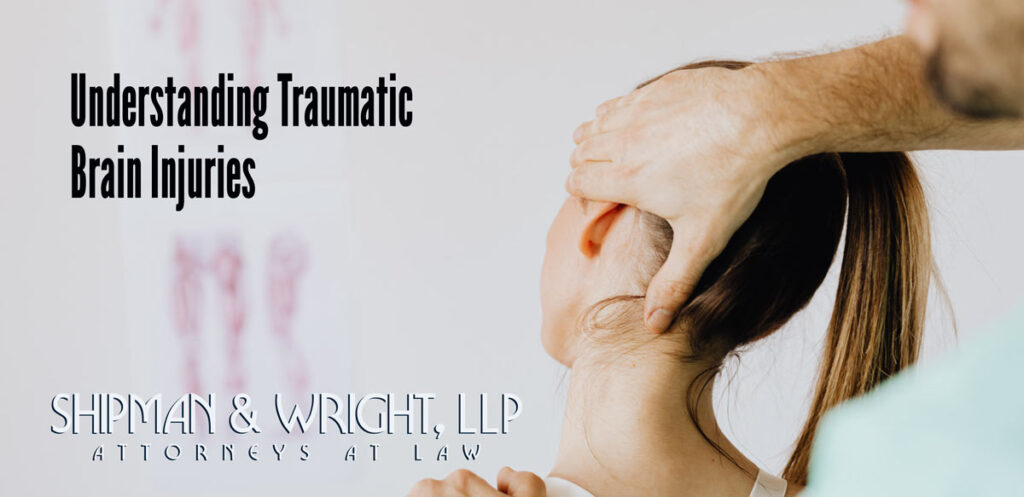Traumatic brain injuries (“TBI”) can have devastating impacts on your way of life, and there are many occasions in which both patients and their healthcare providers do not recognize the symptoms of TBI. Symptoms may not manifest themselves immediately, and the onset of symptoms may not occur for days or even weeks. Establishing that a traumatic event was a cause of a TBI can therefore present a challenge to lawyers who face the burden of proving the existence of a TBI, and the long term effects thereof.
Typically, TBIs occur when the brain impacts the inside of the skull, usually from a fall, a sports-related collision, injury on the job, or a motor vehicle accident. Merely because your brain may get jostled around does not necessarily mean that you will always have a permanent injury associated with that trauma. However, a significant number of people suffer TBI’s each year, and the effects can be profound. That’s why it’s essential to recognize the signs and symptoms so that appropriate treatment can begin.

Signs and symptoms of a TBI include: headaches; dizziness; nausea or vomiting; altered states of consciousness; arm or leg weakness; blurred vision; slurred speech; changes in behavior or mood; altered ability to make decision; effects from bright lights; sleep pattern disruption; and fatigue. There may be moments when you feel fine, but then when you’re attempting to do something that requires a great deal of concentration, you have trouble. Healthcare professionals have a difficult time diagnosing TBI with some patients, because normal “imaging studies” of the brain (like a CT or MRI) may not fully identify the “insult” to the brain because TBI’s are less obvious and more subtle than other life threatening injuries to the brain. The longer a TBI is left undiagnosed the greater risks that you may face for long-term complications.
After a traumatic event, if you experience any of the symptoms set forth above, most especially loss of consciousness, you must seek medical attention immediately. Make sure that you describe to the health care professionals everything that you can remember about what happened, because from that description, health care professionals can determine the type of forces to which your brain may have been subjected and take appropriate action. Do not “understate” your symptoms to your health care professionals, as it is important that they document in your records not only the history, but an accurate description of symptoms you are experiencing. If any litigation ensues from your injuries, providing detailed accurate information that is documented in your medical records is important to proving the nature and extent of any injuries that you’ve suffered.






